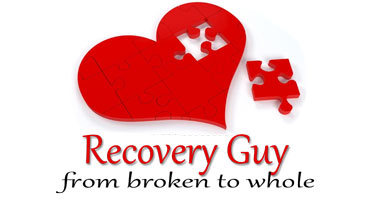
In the life of those who are coming out of addiction and a negative lifestyle, shame hangs around our necks like a scarf during winter. Shame is often negatively implied and applied so we tend to shy away from shame instead of understanding the positive impact and influence healthy shame can have. Having said that, I would like you to pick up the book, Bradshaw On The Family. It is subtitled A New Way of Creating Self-Esteem. I will provide the link at the end of the blog.
Back to the topic of shame, I want to discuss shame in its toxic context. I will let John Bradshaw talk about the many faces of shame. Shame is defined as the painful feeling arising from the consciousness of something dishonorable, improper, ridiculous, etc., done by oneself or another: since almost every person coming out of addiction and a negative lifestyle has things that dishonored us and others, combined with improper behavior that is usually done by us. Consequently, we take on shame as our personal identity, not as something that defines our actions.
If we adopt the definition of shame as our identity, we are bad people trying to get better, not sick people trying to get well. I have discussed this concept and position in podcasts and blogs along the way. Gandhi said, “we cannot do wrong in one department of life while attempting to do right in another department life is one indivisible whole.” I so appreciate this quote because it tells me that I cannot pull to the left While attempting to go straight.
Eventually, I will veer to the left and be off target. Eventually, I must stop going to the left. It contrasts and restricts going straightforwardly. We must do the same thing emotionally with respect to toxic shame. It would be personally, emotionally, and mentally disingenuous if I am trying to live a better life while thinking I do not deserve it, or nothing is going to change regardless of what or how I do it. Eventually, I will sabotage my effort. I will get tired of being pulled in a negative direction and not achieving the type of progress or forward movement I am looking for.
I eventually will tire and or get discouraged by negative and inconsistent results. There is a way to combat this conflict. It starts with positive self-talk. It does not matter what others say, it matters what I believe. If I read inspiring or inspirational books and they are just words, nothing will change. If someone who is noticing my effort pays me a compliment on my forward progress and I partially receive it and as I am accepting it, I minimize what is being said, it will eventually discourage me from moving in that direction. I must practice positive self-talk that will accompany my positive actions. I must continue to practice a principle-centered life while validating those actions with positive self-talk.
As those two aspects come into alignment, I will have emotional, mental, physical, and spiritual alignment which will allow my shame to become an indicator of change needing to be made not my personal identity as a toxic person. I was never a toxic person. My behavior was very toxic, but I was not my behavior. Until I separate both, I will never gain the strength to sustain the changes I want to make.
I must acknowledge the changes I am making and move away from the self-identifier of toxic shame. It is especially important at this stage of my development that I surround myself with people that I see going in the same direction that I want to travel in or am traveling in. I want to support them in their personal effort to lend value to myself as a contributing person. When we see ourselves contributing to the positive lifestyle change of others it adds value to our own personal image and begins to displace the toxic shame image that we carried with us for so long.
Most importantly learn to enjoy life in a way that only a person in recovery can enjoy life. Begin making positive lifestyle choices in where we go, what we do, and who we do it with. Since water seeks its own level, we must elevate our position to seek the level that we hope to achieve. I hope this helps. I hope you get the book by John Bradshaw. Click on the link below and it will take you to a page where you can order this book and other help by Mr. Bradshaw. Above all, be blessed and continue to grow and allow shame to be an indicator of necessary change, not an indicator of who we are.
